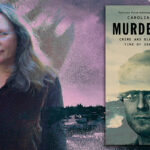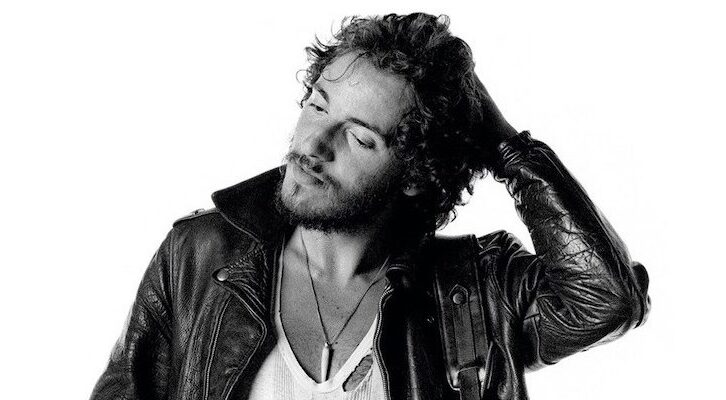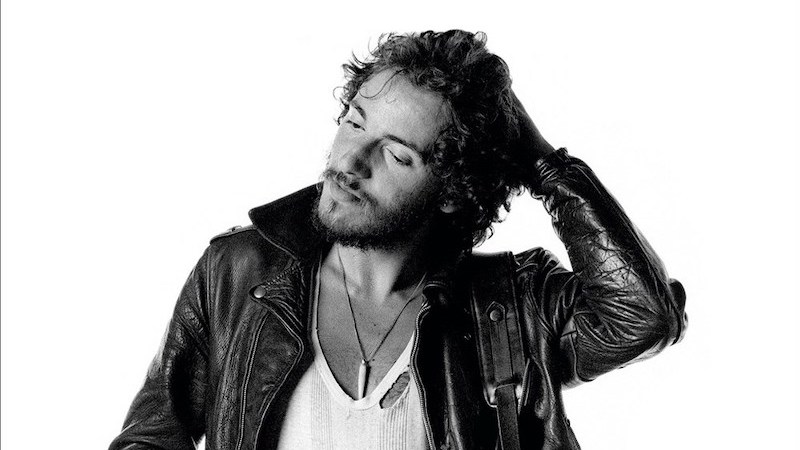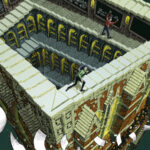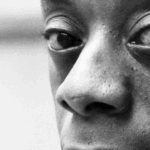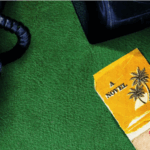The following is excerpted from the introduction to Louis L’Amour’s Lost Treasures: Vol. 2, a new anthology now available from Bantam Books.
*
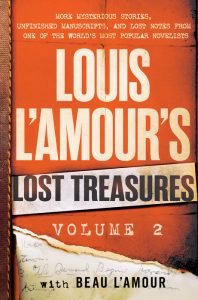 Not long before presenting this manuscript to Random House, I attended a memorial service for a man named Oscar Dystel. Oscar had been the powerhouse president and chairman of Bantam Books from the 1950s to the 1980s. A visionary when it came to editorial content, art direction, distribution, and inventory control, he had worked at Esquire, Coronet, and Collier’s magazines and had been honored for his expertise in psychological warfare during World War II. After Dad had come to Bantam full-time around 1957, and after some initial hesitation, Oscar became a great champion of my father’s work and, eventually, his close friend.
Not long before presenting this manuscript to Random House, I attended a memorial service for a man named Oscar Dystel. Oscar had been the powerhouse president and chairman of Bantam Books from the 1950s to the 1980s. A visionary when it came to editorial content, art direction, distribution, and inventory control, he had worked at Esquire, Coronet, and Collier’s magazines and had been honored for his expertise in psychological warfare during World War II. After Dad had come to Bantam full-time around 1957, and after some initial hesitation, Oscar became a great champion of my father’s work and, eventually, his close friend.
The service was a strange experience for me. I recognized faces, voices, and names that I had known as a child or worked with as a young adult. There were people I had lost track of years before, some of whom, though they had seemed mature enough to have been intimidating at the time, must have been fairly young when I first met them—because here they were, older, grayer, but still alive and kicking.
There was a lot of history and a lot of brainpower in that room, men and women who steered the publishing industry through the heyday of the paperback. These were the people who made my father a legend. They were the people who had made Danielle Steel, Harold Robbins, Irving Wallace, Clive Cussler, Sidney Sheldon, Norman Mailer, Michael Crichton, Barbara Cartland, James Michener, John Grisham, and Ian Fleming household names.
It stirred up a lot of memories, and I found myself mourning Oscar’s passing, not only as a child who had looked up to this gruff but kindly man as one of the only authority figures my father ever chose to answer to, but also as a symbol of a passing era.
***
My father arrived in Los Angeles in the summer of 1946. The bustle of wartime had not yet abated and the rules were such that it was next to impossible to find a hotel that would allow anyone to stay for more than five days. Short-term housing was a constant game of musical chairs. While the primary reason for the trip was the wedding of Dad’s niece, the visit also served as a reconnaissance mission.
Louis was thirty-eight years old and possessed of few prospects. Like thousands of other recently returned servicemen, he needed to make a living. The war had disrupted the magazine business as much as it had everything else. Many of Dad’s contacts had disappeared and, while he had written a few stories even before leaving Europe, the marketplace was changing. The world had been overwhelmed with the real-life version of the high-adventure tales he had specialized in before going overseas. Postwar, editors were looking for Westerns as a more comfortable and nostalgic alternative.
Louis was thirty-eight years old and possessed of few prospects. Like thousands of other recently returned servicemen, he needed to make a living.In the late thirties and early forties Louis succeeded in selling about three dozen short stories. At the time, he had been living with his parents on a small farm in Oklahoma owned by his eldest brother. Now, however, in order to afford the independence he was looking for, he would have to complete more stories each year than he had sold in his entire life.
Writing forty to fifty short stories annually provided Louis with just enough money to live comfortably as long as he kept tight control over his budget. Maintaining his morale was also a reason for the high productivity: “My system was to have so many stories out that when one came back its failure was cushioned by the chances that were left,” he wrote to author and editor Ken Fowler, “and by the time they returned I had others out.”
For five years, a very nice family allowed him to sublet a ten-by-ten room with a bath in the back of their second-floor flat. In the beginning, he’d sit on his bed and place his typewriter on a folding chair. When he had any extra money, he would send it to his mother or spend it on books.
Louis was working full out, as hard as he could. He managed to sell thirty-three out of the fifty-five stories he wrote in ’47, and twenty-seven out of fifty-one in ’48. But around 1950 the pulp market began to weaken. Magazines that had been around for decades were failing, changing their format, or scaling back from monthly to quarterly editions. Competition for the remaining space became more and more fierce.
Some of the difficulties the fiction magazines were experiencing were due to a prewar invention: the paperback book. The Western “dime novels” and “railway novels” (so named because they were sold in train stations) of the nineteenth century were early experiments in this form. True success, however, had to wait until the 1930s, when a pair of innovations were introduced: an effective glue strip used to bind the book together and the adoption of a distribution model invented by magazine publishers.
Some of the difficulties the fiction magazines were experiencing were due to a prewar invention: the paperback book.Before World War II, there were fewer than five hundred real bookstores in the whole of the United States, and most of those were centralized in a dozen northeastern cities. The rest of the country was serviced by “book of the month” clubs and libraries. Before the advent of the paperback, at least half of all titles produced by American publishers sold fewer than 2,500 copies. The book industry was staid and predictable, organized around a group of venerable old companies. Its product came from a relatively elite group of writers and sold to a relatively elite group of readers.
On the other hand, the magazine business was a good deal more lively and inventive. While bookstores may have been in limited supply, the country had thousands of newspaper and magazine stands, cigar stores, drugstores, and railway and bus stations. Though the two businesses, books and magazines, eyed one another with a mixture of envy and contempt, it was destined that they should meet.
It was not an immediate love affair. Hardback publishers looked down on the cheap books, and believed that the American masses weren’t readers. They allowed paperback publishers to reprint their titles but assumed the arrangement would be at worst an experiment on someone else’s dime and at best no more than a passing fad. However, the experiment turned into a breakaway success and led to an explosion of paperback publishing houses in the mid- to late 1940s. The number of copies sold shot into the millions. Mass-market distribution changed the entire concept of success in the publishing industry.
Dad had always intended to become a novelist. That had been his plan ever since his first attempt in the late 1930s, No Traveller Returns. But a great many short stories could be written in the same number of months it took to write a novel, and the chance was much better that a few of them would sell.
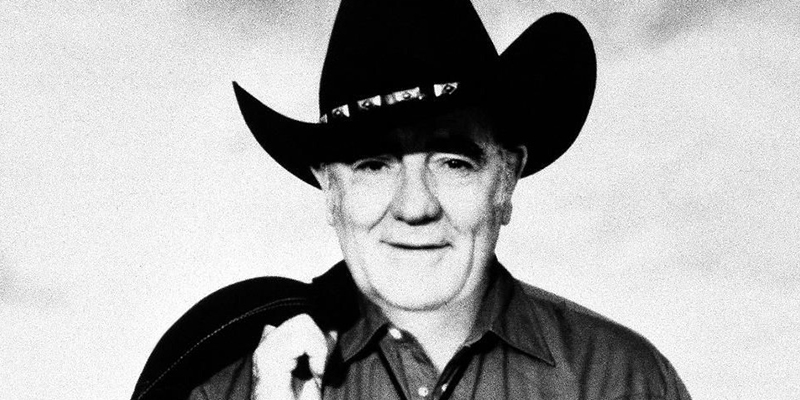
Ten years later, with rent constantly due and his mom and dad expecting help rather than giving it, the time it took to write—and sell—a novel was an even bigger risk. Dad was living from paycheck to paycheck, and those checks came only when he was lucky enough to sell a story. Louis wanted to make the move to writing longer material, and, risky or not, the time was right. In the end, though, none of that mattered: Dad had to move on to the next step . . . because, with the decline of the magazine fiction business, the one on which he was standing had begun to disintegrate.
***
In the late 1940s, with some success selling Western short stories under his belt, Louis set out to sell a Western novel. He was still writing a few high-adventure and detective stories, but his sister had sent him a diary containing a brief account of a party of German settlers who had been swindled in a fake gold rush. That section of the diary became the inspiration for Westward the Tide.
Years earlier, impressed by a short story published in New Mexico Quarterly Review, a New York agent had contacted Louis and offered his services. The man was never particularly good at selling Dad’s material, but he did represent some very respected writers and, still a relative newcomer, Dad was honored to think of himself in such august company. The agent initially expressed high hopes for Westward the Tide. Louis, writing to his mother, put it this way:
“Just had a letter . . . on Westward the Tide and [the agent] believes the novel will have an excellent chance with the Post or Collier’s, which would mean $6,000 or more for me.”
When Louis mentions these two top magazines, he is referring to the possibility of one of them serializing the novel—including a chapter or two per issue until the entire story is printed. This method of publishing was the best money available at the time, and the prestige gave the author an even better chance of selling the rights to a book publisher afterward. It is worth noting that Louis had yet to earn $6,000 in an entire year.
It breaks my heart to know that Dad was so desperate. He was seeing his earnings decline each month as stories became harder and harder to sell, and he wanted to show his parents that he could actually make it as a writer. As the letter goes on you can sense that desperation:
“. . . I don’t believe it will sell to them, although it might. However, I do think it’s a fair story. At that, it promises well, for if he thinks it that good, he should know, and it means my next one will be that good . . . I want to double my income this year, but will do better than that, I think . . . Westward the Tide is a fair job that I could have improved a lot with more work. It will sell, but if I get $1,000 for it, I shall be satisfied. And I’ll do that one way or the other . . . With luck and no major illness, I’ll be a wealthy man one of these days.”
Eighteen months later, after rejections from several publishers, his agent finally sold the rights to The World’s Work in the United Kingdom for a mere $243.68 and mailed away my father’s only copy of the manuscript. Dad agreed to the deal because, by then, he was too desperate to wait for anything better. Not only was this vastly less than Dad might have made by cutting the story down and selling it to the pulps, but since he’d lacked the money to have it copied, he could not continue trying to sell the U.S. rights. He would not see a copy of Westward the Tide in any form for almost twenty years.
***
It is only now that I realize how young I was when I first heard about Dad’s mysterious missing novel—the book he had never seen in published form, and to which he no longer even had a manuscript. When I was eight years old, the whole family took an extended trip to England and Ireland. The year before, Mom and Dad had made a whirlwind tour of Britain to promote the motion picture version of Shalako. Both the film’s gentlemanly producer, Euan Lloyd, and Dad’s publisher in the UK, Corgi, had pulled out all the stops, nearly overwhelming my parents with the best of British hospitality.
It is only now that I realize how young I was when I first heard about Dad’s mysterious missing novel.The experience was so extraordinary and Corgi was so enthusiastic about promoting Dad’s books that my parents decided to return the next year to do more of the same, except this time they would bring me and my sister along and turn it into a family vacation. It would be the first we had ever taken beyond the American Southwest.
1969 was an amazing time to be in England. The country was blossoming after the grim years of postwar austerity. British music, films, cars, and fashion had taken the United States by storm, and if the acclaim Dad received on our trip was any indication, the English were indulging in American culture as well. In between seeing the various sights, Louis spent a great deal of time autographing books and doing TV and radio interviews.
Corgi did such an exceptional job that when the trip was over my mother marched into Oscar Dystel’s office in New York and shoved a scrapbook of all of Dad’s appearances across his desk. “This is what you should be doing for Louis in the United States!” she told him. Up until that moment, virtually all of the publicity Louis had received he had set up for himself.
After England we flew to Ireland and saw Tara Hill, the ancient seat of the Irish kings. We saw passage graves a thousand years older than the pyramids and traveled the southern coast in a horse-drawn gypsy caravan wagon. A great many of the Irish locations Louis experienced on this trip would later be used in his novels.
The final success of our great English adventure was that somewhere along the way Dad mentioned to Michael Legat, the editorial director of Transworld, the company that owned Corgi, that he had written a book that had never been published anywhere but England.
By the time we were home in Los Angeles a package was waiting for us. Mr. Legat had convinced World’s Work to part with its last copy, discovered in a dusty file in its office in Surrey.
***
By the early ’50s dad’s financial situation had become extraordinarily difficult. He was conning his way onto studio lots to sell television producers episode ideas for the shortest money imaginable and he was going to the park in the mornings so his landlady wouldn’t realize he couldn’t afford to buy himself breakfast. He was afraid of being asked to leave if she lost confidence in his ability to pay the rent. In 1951 he earned only a disastrous $2,200, less than half the modest amount he made in an average “good” year. His creative output remained high—he produced thirty-eight stories, some of them quite lengthy—but he was able to sell only seventeen of them. In the ledger where he noted which manuscripts had been sent to what magazines, the words Discontinued Publication appear again and again; the magazines had gone out of business.
Then, in September, Louis received even more bad news. It was a twist of fate that, over the next two years, would change his life in ways he could barely have imagined. He submitted a short story titled “Gift of Cochise” to Better Publications, a magazine outfit run by his friend and longtime benefactor Leo Margulies . . .
. . . and Leo turned it down.
Despairing—and feeling he had nothing to lose—Louis sent the story on to his agent. And at last the man came through, making a sale to Collier’s.
Dad’s fortunes immediately began to improve. In quick succession, he sold a treatment that became the movie East of Sumatra to Universal Studios, and another story to NBC’s Fireside Theatre. Even before “Gift of Cochise” was published, Louis was able to option it to producers John Wayne and Robert Fellows. The movie, when it was made the following year, was titled Hondo.
Louis promptly began paying off his debts and swore that he would never allow himself to get that close to the edge again. Booking a flight to the East Coast, he set up meetings with every editor he knew and probably a few he didn’t. Previously, he had relied on his agent or, more often, simply sent his work through the mail in the hopes that an editor might like it. Now, he confronted the publishing industry with the full and considerable force of his personality.
Up until this time, Louis had been a writer working in several genres who just happened to write quite a few Westerns. They were popular and he knew the West from personal experience, so the genre had been a good fit. Writing to Oklahoma author Harold Keith of his early career and the transition away from writing adventure stories, Louis said: “The thing that moved me into the western field was simple economics . . . the market was larger. However I never intended to stay with it . . .”
Using the upcoming movie production of Hondo as leverage, and with paperback companies always eager to take advantage of a studio’s promotion efforts, Louis pitched himself to paperback and magazine publishers alike as an author who specialized in Westerns. “Success is not a trollop that gives herself to every comer,” he later commented. “Success must be lured and trapped . . . Hondo was not my break through, my use of Hondo was.”
After the hard times that Dad had just been through—the closest to the edge of abject poverty he had been since he was a kid—this was a major victory.Within two months he had sold the reprint rights for the magazine novels The Rider of the Ruby Hills, Showdown at Yellow Butte, and Crossfire Trail to Ace Books. In addition, Ace picked up Utah Blaine, Louis’s first story written specifically for the paperback market.
After the hard times that Dad had just been through—the closest to the edge of abject poverty he had been since he was a kid—this was a major victory. Later that same summer he signed a contract with Fawcett’s Gold Medal Books to expand “Gift of Cochise” into a paperback novelization, a companion piece to the release of the movie. That deal included a commitment for one new paperback original per year from Gold Medal.
Dad was ambitious, and concerned about the future. He was getting older and he had lived through tough times, not just the previous several years but the Depression and the rough (for him) decade that preceded it. He figured he could write three paperback-sized novels a year, and he was not going to let up until he could make sure that every month of every year was put to good use. He summarized his goal in response to comments made in Inside Bookselling:
“Dick Carroll was then editor at Fawcett, and I approached him with the idea of three books per year. He liked the idea but the powers-that-be at Fawcett did not. I like to write and I write better when I write all the time so I went to meet Saul David.”
And that meeting led to what must be one of the most profitable relationships in publishing history.
***
The sound of a swimming pool filter hushed in the background, sunlight reflected off greenish water and cracked cement, a white glare broken by the outline of a nearly leafless tangerine tree in a pot. The room where we sat was glass walled, the “family room” of a rambling 1950s ranch-style home in the heart of the San Fernando Valley. The place was an indication of the long, slow purgatory allotted to those no longer in favor in Hollywood. It had seen better days, and so had the small white-haired man who sat across from me dressed in tattered pajamas and a faded robe.
Saul David had once been the producer of such films as Von Ryan’s Express, Our Man Flint, Fantastic Voyage, and Logan’s Run. He had also once been the editorial director of Bantam Books, a man who, when he left publishing to make movies, had been replaced by a staff—an entire department.
Saul had many private demons. He could be fiercely vindictive and had never been afraid of giving anyone, from the head of a studio to the lowliest assistant, an identity-destroying dressing-down. In an industry that values deference (let’s not call it “subservience”) above most other traits, Saul burned many bridges, often well before he even arrived.
The only people who seemed safe from his acid tongue and flashing temper were my parents. His bond with them had been forged in the purer world of books. Neither were intimidated by him, and I think it was their unconditional acceptance that completely disarmed him. Mom and Dad were two of the very few people he actually wanted to be around.
Worried he might decide I was wasting his time, I got my tape recorder rolling and asked him how he had met my father.
Saul:
“I was in a suite at the Beverly Hills Hotel when the front desk called and said, ‘There’s someone here to see you.’ I said who was it, and they said, ‘A Mr. L’Amour.’ I said, ‘I don’t know any Mr. L’Amour,’ and they said, ‘Well, he’s on his way up to see you now.’
“I opened the door, and there stood Louis, who was all his life a very large guy. Maybe memory has gilded it, but as I remember . . . the sun was coming in from the doorway and Louis blocked it out.
“He was . . . enormously aggressive, in a soft-spoken sort of way. I mean he had a purpose. He was going to do something, and I was not going to interfere with it. He was going to be pleasant about it, but it was going to happen.
“He said, ‘I know you’ve never heard of me . . .’ He had a sort of set speech which I . . . I’m afraid I can’t reproduce after all these years, but I do remember it came out like, ‘I’m the best Western writer even though you’ve never heard of me. I want to join with you and I’m going to become the star of your firm . . . and you won’t be sorry!’
“‘How do I know this?’ I said. He gave me some pages. They’d been torn out of, I guess, a magazine. And he said, ‘Here’s some of my stuff. You can read it.’
“So I said, ‘Okay, well, uh, what’s your phone number? I’ll call you tomorrow or you can call me.’
“He said, ‘No, read it now.’
“I considered arguing about it and I decided it was easier to read it. It was . . . Hondo [“Gift of Cochise”], and the truth of the matter was that, intimidated or not, it was terrific! It was so much better than anything we had, you know? It had a ring to it. It had a personal style to it. He had a very particular way of using language. The man himself reminded me of what I thought Jack London must be like.
“I said, ‘Okay, let’s talk a deal. What do you have in mind?’“
And, gosh he was pleased. He didn’t fall down and grovel. He sort of congratulated me, as I remember.”
***
In two years, Louis had gone from the edge of eviction to signing contracts with multiple publishers. It looked like his future was set as long as he could keep churning out books that the public wanted to buy. As a writer who was rarely at a loss for ideas and who had a powerful will to create, one of the few obstacles he had left was juggling the needs, and schedules, of his three publishers, Ace, Gold Medal, and Bantam. More than anything, Dad wanted to streamline the way he did business, to save as much of his energy for writing as possible. For all his ambition, he wasn’t greedy. He liked the idea that everyone was making good money off his work and he eventually pressured Bantam to keep his cover prices low. He wanted his audience to feel like they could always afford to buy his books.
It took Louis four years after his meeting with Saul to bring all of his business to Bantam. The idea of publishing three books a year by a single author was a daunting proposition in the early days of paperbacks. Oscar Dystel, the newly arrived president of Bantam, had come on board to solve the host of issues that had caused the market to become oversaturated with unsold books. Faced with an excess of material being released into an unruly marketplace, he was not initially supportive of an aggressive newcomer writing in what was considered to be a second-rate genre.
But Saul David personally went to bat for Louis. He had known Oscar in Cairo during the war and knew how to be persuasive. It made no sense to lose two thirds of the money Louis’s books were making to other publishers. And, because the market was chaotic, it made no sense to not be in control of the release of all three books. Louis L’Amour was successful and becoming more so; all it would take was the guts to say yes.
Saul being Saul, he also threatened to quit.
After a successful test in El Paso and a couple of other cities, Louis and Oscar signed a deal that gave Dad the opportunity to sell three Western paperback originals a year to Bantam. For my father, it was the beginning of an era of relative prosperity and stability.
Creatively, however, the pressure to do something different had been mounting. While Louis enjoyed writing Westerns, it was far from the only genre that interested him. With the security of his new contract to protect him, he began to plan an attack on a number of other genres. But it was an effort that did not succeed for a very long time.
***
Before the advent of the paperback, the idea of genres, of different categories within the universe of fiction, wasn’t the controlling force that it would later become. When paperbacks first appeared, they were rarely sold in bookshops, and merchants hardly cared what was in the book section of their stores. Paperbacks at magazine stands, drugstores, and supermarkets were primarily organized by publisher, the subject matter casually mixed together.
As the 1950s became the 1960s, bookstores, followed by other outlets, began a process called “integration”—organizing books by genre or category rather than by publisher. Unfortunately for many authors, this meant that publishers developed a keener interest in keeping their writers locked into the category and the specific area of bookstores where the majority of the readers expected to find their work.
In the early 1960s Louis wrote the following in his journal:
“Oscar Dystel . . . out from NY for a brief visit. Says my books are selling in great style but tries to talk me out of trying anything else, and of course, I see his point.”
This conversation was probably regarding material like The Walking Drum, a twelfth-century adventure that Dad had just finished. Louis and Oscar had great respect for each other, and Louis understood that once Oscar found a successful author he didn’t want to take any chance of disturbing that success.
As much as Dad wanted to stretch his wings creatively, there were similar issues to be considered in his own life. He was fifty-four years old, success was still new to him, and I had been born a year or so earlier. For the first time he had a family of his own to support. Louis knew the Westerns were his bread and butter and, though he had tried, he’d had no luck selling anything but a Western in a decade. Yet he still felt like rebelling. A few months later he wrote:
“Starting next month I shall do 5 pages of a western every day, and the rest of the time on other things. Stories I would much rather do. Yet I can’t knock the westerns . . . Lando sold 103,000 copies during its first month.”
In the previous five or six years, Dad had begun work on a good number of stories in other genres, but the need to cover the costs of his growing family and to save money in case of hard times constantly pulled him away. He had even finished two non-Western novels, The Walking Drum and the so-far-unpublished Sky Ring Water. But Sky Ring Water needed a considerable amount of work, and The Walking Drum was rejected by a number of publishers. As soon as Dad stepped away from writing Westerns, it seemed like he was starting his career all over again. Something needed to change and, as it turned out, the social upheavals of the 1960s were already creating the opportunity he needed.
In 2012 I was working with artist Thomas Yeates on the comic book adaptation of Louis’s story “Law of the Desert Born.” I visited his home in Northern California several times during the two years that it took to produce the hundreds of images that went into that project. One evening, we sat in his studio as Tom played the guitar. The sky over the Pacific still glowed bright enough to see the horizon. I knew Tom had been an illustrator since the 1970s and I asked him about his familiarity with horses, Western landscapes, and cowboy gear.
He replied by telling me stories of a childhood growing up in some of the more rural areas of the Central Valley. We talked about how we found it odd that many people don’t seem to recognize California as the profoundly Western state that it is. “Before I was a hippie, I was a cowboy,” he said, and segued from “The Streets of Laredo” into a psychedelic riff à la Jimi Hendrix.
I knew that cultural crossover very well, though I saw it happen the other way around. I spent the 1960s and ’70s traveling around the West; my sister, mother, and I went wherever Dad needed to research or promote his books. Even as a child I recognized that the hard-bitten blue-collar cowboys and miners who had once looked down on “longhairs” were suddenly beginning to get a bit shaggy themselves.
The hippie had met the cowboy, and they’d found they were brothers.On any street in the country, you could spot a guy with shoulder-length locks and elaborate facial hair in the style of Wild Bill Hickok or Commodore Perry Owens. Women affected Indian braids and long skirts and everyone wore Levi’s, vests, wide-brimmed hats, and high-heeled pull-on boots. Musical tastes were also drifting, from the British Invasion toward folk and country rock, which had clear roots in rural and Western Americana. In those days, counterculture contained an anti-elitist bent, regardless of political sentiment. The times they were a-changin’ for everyone. The children of the baby boom, the young people of the 1960s, could see that the heroes of Western fiction had a profound antiauthoritarian streak and were seeking relief from the power of the East Coast establishment and the expectations of Victorian conformity. The hippie had met the cowboy, and they’d found they were brothers.
While Louis eschewed the outward trappings of a younger generation, like Woody Guthrie he became an elder statesman to millions of young people remaking their lives in new and rebellious ways. He knew from personal experience what it meant to be a wayfaring stranger, an outsider, a day laborer panhandling his way across a nation that didn’t understand his dreams. His characters were often young and adrift, orphans and outcasts, searching for employment and community. I have read hundreds of letters he received in those years, some from girls who were hungry and lost on the streets of Haight-Ashbury, others from lonely and scared boys in the jungles of Vietnam. All discovered freedom and adventure and some sort of comfort and personal guidance in the pages of Dad’s work. There are powerful reasons why Louis’s greatest growth in popularity was in the 1960s and ’70s.
So instead of fighting, unsuccessfully, to make a clean break from Westerns as he had in the late 1950s and early ’60s, Louis’s new plan was to explore the creative possibilities within the notoriously brittle boundaries of the Western genre. “I know that some of my readers do not like my going away from the straight western, but I must do it for myself,” he wrote in his journal. If he succeeded, the next step would be to gently convince both his fans and his publisher to follow him into any genre he wished.
It was a cautious strategy, but Louis knew that it was the right moment. though as skeptical as anyone who’d lived through the radicalism of the ’20s and ’30s, dad also understood what he saw going on around him. From doing personal appearances and book signings, answering fan mail, and just watching the changes in our West Hollywood neighborhood, he could tell that a younger generation was making the world ready to accept a broader definition of just about everything.
Louis laid the groundwork carefully, crafting a vision of himself as a “frontier writer” rather than a man who simply wrote Westerns. He established that he was going to write three interconnected series following the adventures of the Sackett, Chantry, and Talon families. Some of these would be traditional Westerns, but he was going to also carry their stories back to the earliest days of the North American frontier.
The plan was to convince the publisher that he had not drifted beyond their comfort zone, keep the booksellers from feeling they didn’t know where to rack his books, and allow his traditional fans to find his work while following him into new and interesting territory. With any luck he’d be able to cross over into the arena of swashbuckling adventure and historical novels. Eventually, he hoped to sell longer and more complex novels without rattling too many links in the complicated publisher-to-reader supply chain.
After a series of experiments throughout the 1960s, like the contemporary Western The Broken Gun, the attack on audience expectations began in earnest in 1972. The Ferguson Rifle is a Chantry family story and takes place just after the Revolutionary War. Sackett’s Land spends a good deal of its page count in Elizabethan England. The most significant departure was The Californios, which was not only set in a Mexican California slowly being invaded by Yankees, but contained elements of mysticism and science fiction too. “You’ve really taken a chance with [Sackett’s Land ],” Bantam’s Marc Jaffe wrote in a letter to Louis, “but you were always one to take a chance. The story moves as well as any of your conventional westerns.”
Chance or not, the impact on sales was positive and meshed closely with the zeitgeist of the 1970s. Carlos Castaneda’s The Teachings of Don Juan and its mystical sequels had been bestsellers for some time, and the impending American bicentennial had caused historical novels set in years before the Revolution to surge in popularity. On a more negative note, the social unrest of the times, the Watergate investigations, fuel rationing, thousands of domestic bombings, and international terrorism all pushed readers to seek comfort, or a sense of American identity, in genres such as Westerns and historical novels.
The social unrest of the times, the Watergate investigations, fuel rationing, thousands of domestic bombings, and international terrorism all pushed readers to seek comfort, or a sense of American identity, in genres such as Westerns and historical novels.The success of Sackett’s Land and The Californios put Louis on course to do more of the same, and eventually allowed him to make the move away from the American frontier and to occasionally publish books like his beloved The Walking Drum, in 1984.
That outcome, however, as the following journal entry indicates, was initially far from certain:
I wait warily for the returns on DRUM, out this coming wk. Some of my regulars may desert me on that one but I may recruit new readers. Yet one never knows. Many a writer as well as an actor has broken his back trying to do something different. Several people have commented on my making a change at this [late] date.
In the end, though, the book was a massive bestseller and paved the way for a similar success with Last of the Breed in 1986 (a cold war thriller) and The Haunted Mesa in 1987 (science fiction). It had been a hard road full of compromise and patience, but Dad had finally proven he was not a writer whose success was tied to just one genre.
In closing, I will return briefly to the memorial service for Oscar Dystel. For me, the most telling moment came when Patrick Janson- Smith, once an editor at Corgi, quoted Oscar saying: “The right to fail is the catalyst of creativity.”
I can think of no better phrase to describe the contents of Louis L’Amour’s Lost Treasures: Volume 2. Yet mostly I believe that what you see here was only a failure of longevity, for Dad intended to permanently abandon very few of these ideas. “Found several good story openings,” he wrote in 1976, “. . . and once the opening is written the story is mine forever.”
If you read the “bonus feature” postscripts that accompany the new Lost Treasures editions of many classic L’Amour novels, you will notice that Louis started and then set aside quite a few of his best-known works. Whenever possible, he would return to them a few years later and, with typical energy, blast all the way through to the end.
“So much to write and so little time!” he commented in the mid-1980s. “What will it matter if it is not written? Perhaps not at all, yet I think of Nietzsche’s Zarathustra: ‘I am like the bee that hath gathered too much honey; I need hands reaching out for it.’”
____________________________________________




